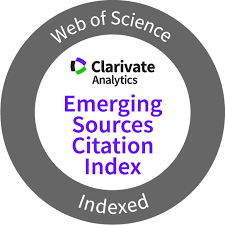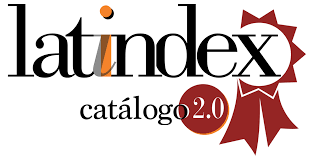Applying the Situational Theory of Publics to the first external voting process for Costa Ricans abroad: Lessons for international public relations and public diplomacy / Aplicación de la Teoría Situacional de los Públicos al primer proceso de voto en el
DOI:
https://doi.org/10.5783/revrrpp.v5i10.327Keywords:
International public relations, public diplomacy, external voting, voting intention, Situational Theory of Publics, diaspora, immigrationAbstract
Using information gathered from 40 interviews with Costa Ricans who live abroad (some who decided to vote in the newly granted external voting right and others who did not vote in the Costa Rican National Elections of 2014), the variables that impacted the voting intention and/or behavior of these Costa Rican diaspora members were categorized using the independent variables presented by the Situational Theory of Publics: problem recognition, constraint recognition (internal and external constraints), and level of involvement. This theory was used to better understand what is moving these potential external voters to vote or not, in order to suggest what kinds of efforts should the Costa Rican government undertake to increase the number of external voters. The implications for public diplomacy and international public relations are explored
Downloads
References
Aldoory, L., & Sha, B. L. (2007). The situational theory of publics: Practical applications, methodological challenges, and theoretical horizons. The future of excellence in public relations and communication management, 339-355.
Bravo, V. (2011). Conceptualization of diaspora relations from the government viewpoint: An exploratory qualitative study of diaspora relations in the cases of Costa Rica and El Salvador (Doctoral dissertation, University of Florida).
Bravo, V. (2013). Communicating external voting rights to diaspora communities: Challenges and opportunities in the cases of El Salvador and Costa Rica. Revista Internacional de Relaciones Públicas, 3(5), pp. 5-26.
Bravo, V. (2014a). El Salvador and Costa Rica’s state-diaspora relations management. International Journal of Communication, 8 (22). Available at http://ijoc.org/index.php/ijoc/article/view/1822.
Bravo, V. (2014b). The importance of diaspora communities as key publics for national governments around the world. In G.J. Golan, S.U. Yang, & D. Kinsey (Eds), International Public Relations and Public Diplomacy: Communication and Engagement. New York: Peter Lang.
El Mercurio (2014, April 22). Senado aprobó el proyecto de voto chileno en el extranjero [Senate approves Chilean external voting right project]. Retrieved April 5, 2015, from
Fitzpatrick, K. R. (2007). Advancing the new public diplomacy: A public relations perspective. The Hague Journal of Diplomacy, 2(3), 187-211.
Glaser, B. G. & Strauss, A. L. (1967). The discovery of grounded theory: Strategies for qualitative research. New York: Aldine.
Golan, G.J., Yang, S.U. & Kinsey, D. (2015), International public relations and public diplomacy: Communication and engagement. New York: Peter Lang.
Grunig J. E., & Hunt, T. (1984). Managing Public Relations. Belmont: Thomson Wadsworth.
Lafleur, J. M. 2013. Transnational politics and the state. The external voting rights of diasporas. New York: Routledge.
Lijphart, A. (2012). Patterns of democracy: Government forms and performance in thirty
six countries. New Haven, CT: Yale University Press.
Pew Research Hispanic Center (2013a). Two-thirds of the Hispanic population is of Mexican origin. Retrieved February 2, 2015, from
http://www.pewhispanic.org/2013/02/15/hispanic-population- trends/ph_13-01 23_ss_hispanics5/
Pew Research Hispanic Center (2013b). Statistical portrait of Hispanics in the United States, 2011. Retrieved February 2, 2015, from
http://www.pewhispanic.org/2013/02/15/statistical-portrait-of-hispanics-in-the-united-states-2011/#6
Ruiz Ramón, G. (2014, February 13). TSE escrutará este viernes votos emitidos en el
extranjero [TSE will count this friday ballots casted abroad]. La Nación. Retrieved
February 21, 2015, from
Sriramesh, K., Zerfass, A., & Kim, J. N. (Eds.). (2013). Public relations and communication management: current trends and emerging topics. Routledge.
Strömbäck, J., & Kiousis, S. (2013). Political Public Relations: Old Practice, New Theory-Building. Public Relations Journal, 7(4), 1-17.
Tribunal Supremo de Elecciones (2014). Elecciones Nacionales Febrero 2014. Costa Rica. Mapa Electoral. Retrieved February 2, 2015, from
http://svr.tse.go.cr/aplicacionvisualizador/datos-definitivos.aspx
Tribunal Supremo Electoral (2014). Escrutinio Final 2014. El Salvador. Primera Elección Presidencial 2012-2 de Febrero. Retrieved February 2, 2015, from
http://www.tse.gob.sv/2014/escrutiniofinal_1ray2davuelta/pres1/dep15.html
Strömbäck, J., Mitrook, M. A., & Kiousis, S. (2010). Bridging two schools of thought: Applications of public relations theory to political marketing. Journal of Political Marketing, 9(1-2), 73-92.
White, C. (2009). The history of El Salvador. Westport, CT: Greenwood Press.
Downloads
Published
How to Cite
Issue
Section
License
Authors publishing in this journal agree to the following terms:
a. Authors retain copyright and grant the journal the right to be the first publication of the work as licensed under a Creative Commons Attribution License that allows others to share the work with an acknowledgement of authorship of the work and initial publication in this journal.
b. Authors may separately enter into additional arrangements for non-exclusive distribution of the version of the work published in the journal (e.g., placing it in an institutional repository or publishing it in a book), with an acknowledgement of initial publication in this journal.
c. Authors are allowed and encouraged to disseminate their work electronically (e.g. in institutional repositories or on their own website) before and during the submission process, as it can lead to productive exchanges, as well as earlier and higher citation of published work (see The Effect of Open Access).




